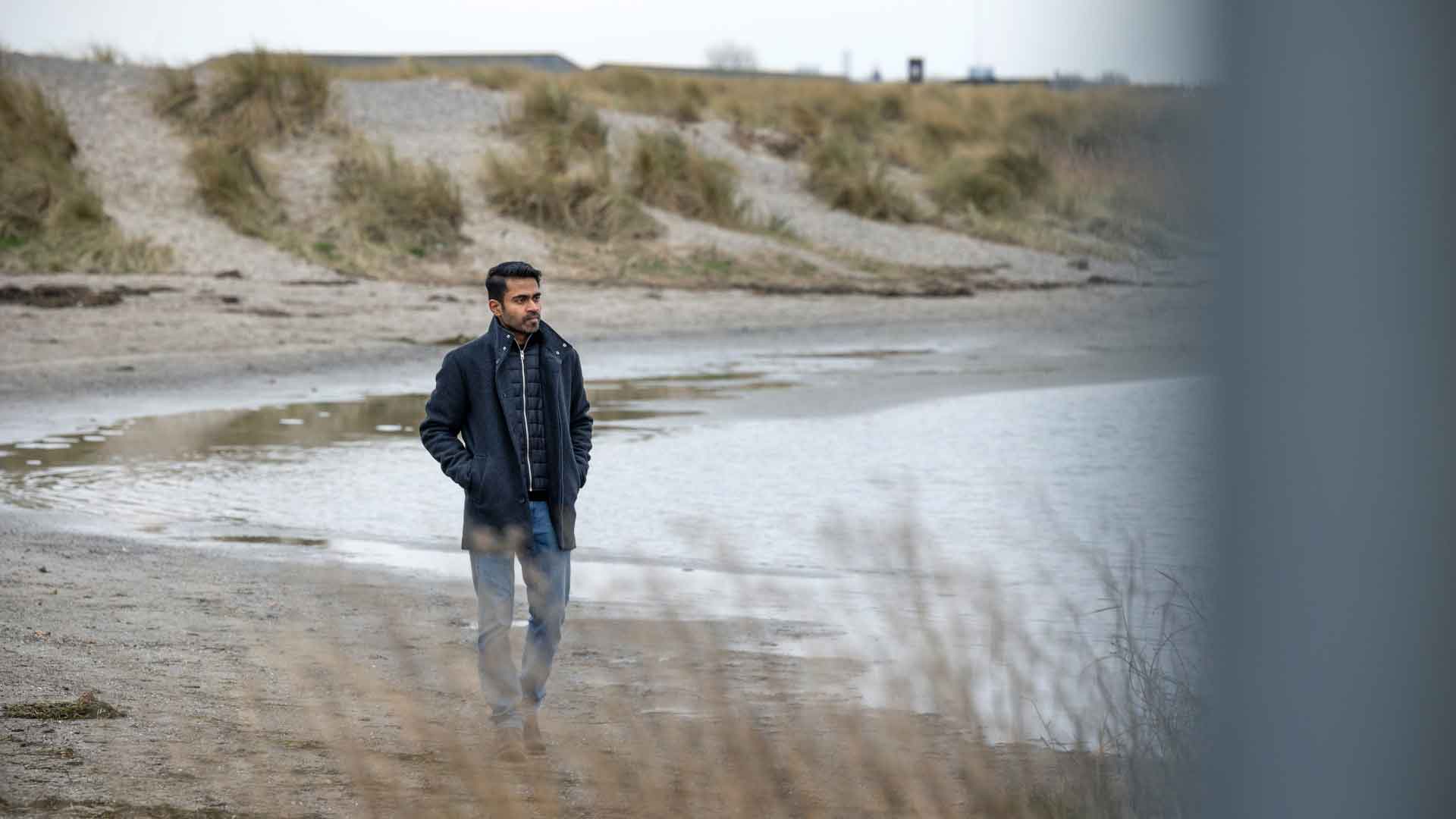"My research could lead to a better marine environment”

- Name: Satish Pawar
- Age: 35
- Education: Cand.polyt., Remote Sensing, Indian Institute of Remote Sensing, affiliated to Indian Space Research Organization
- Project research field: Marine environment
- Project period: 2022-2025
- Supervisors: Professor Karen Timmermann (Main Supervisor), professor Jens Kjerulf Petersen
My PhD project is about ...
using remote sensing, which includes registrations from e.g. drones and satellites, to monitor eelgrass areas in Danish waters.
Eelgrass is a flowering plant with long, narrow leaves that grows in salt and brackish water close to the coast. It is unique when it comes to creating habitats for many marine organisms, such as the Atlantic cod, thus contributing to marine biodiversity. Eelgrass also sequesters both carbon and nutrients, which benefits the marine environment. Eelgrass beds can also filter out particles from the water, and the larger the eelgrass beds become, the clearer the water gets in those areas and the better the water quality gets.
In other words, it is an indispensable plant if we are to ensure a healthy marine environment. That's why my colleagues and I are monitoring the Danish eelgrass areas with remote sensing techniques to map where eelgrass grows in large quantities and to find answers to why it grows in some places and not in others. We will also be able to assess which coastal sea areas can be replanted with eelgrass.
The research can contribute to ...
take measures to improve coastal waters and provide a well-informed answer to which areas should be prioritised when it comes to protecting and planting eelgrass and where the least effort is needed because eelgrass already grows in reasonable quantities.
The purpose of my project is to identify suitable seabed areas for eelgrass so that we can improve water quality and biodiversity in Danish waters in the long term.
It’s been a great day on the job when ...
a theoretical predictive model works, and when I receive new data or new information, I can use to get further with my research.
I switch off from my work when…
I switch off my work computer and do something other than research.
I travel a lot, and I also love to go for a ride on motorcycles, so much so that I bought one. It's a great way to travel because you really get to experience nature along the way.
I once travelled from DTU's campus in Lyngby to Jutland on a motorcycle for work, and it was a beautiful trip.
I became a PhD researcher at DTU because ...
I came across this project, and it made me wonder why this type of eelgrass is so important to study and try to find new suitable seabed areas for it.
The more I read about eelgrass, the more curious I became because I realised that eelgrass is as important to the Nordic waters as coral reefs are to tropical waters.
I worked with similar satellite data and monitoring images of coral reefs in India during my master's programme, and when I started looking for a PhD project, I wanted to continue using images and artificial intelligence to predict how and where coral reefs are changing. The project at DTU Aqua was a perfect fit, even though I've swapped corals for eelgrass.
As a new PhD researcher, I was surprised ...
the extensive collaborations among the researchers at DTU.
It's unique that there is so much knowledge sharing across disciplines and that you share your research results so freely.
The biggest challenge I experience as a PhD researcher is ...
the time frame of three years. It may sound like a lot to have three years for a research project, but it's a race against time to come up with useful and good results.
In the future, I would like to work with ...
research in the same field as now, with access to a laboratory with high-tech drones and other surveillance equipment.
However, I would like to return to researching coral reefs at some point and perhaps use the same techniques I use in this project to monitor them and predict the way they develop and grow.
I get new ideas/get motivated when I...
talk to my supervisor because she always gives me a different perspective on what I present to her. But I also get new ideas when I read or listen to something completely outside my research field, or watch videos about technology on YouTube.